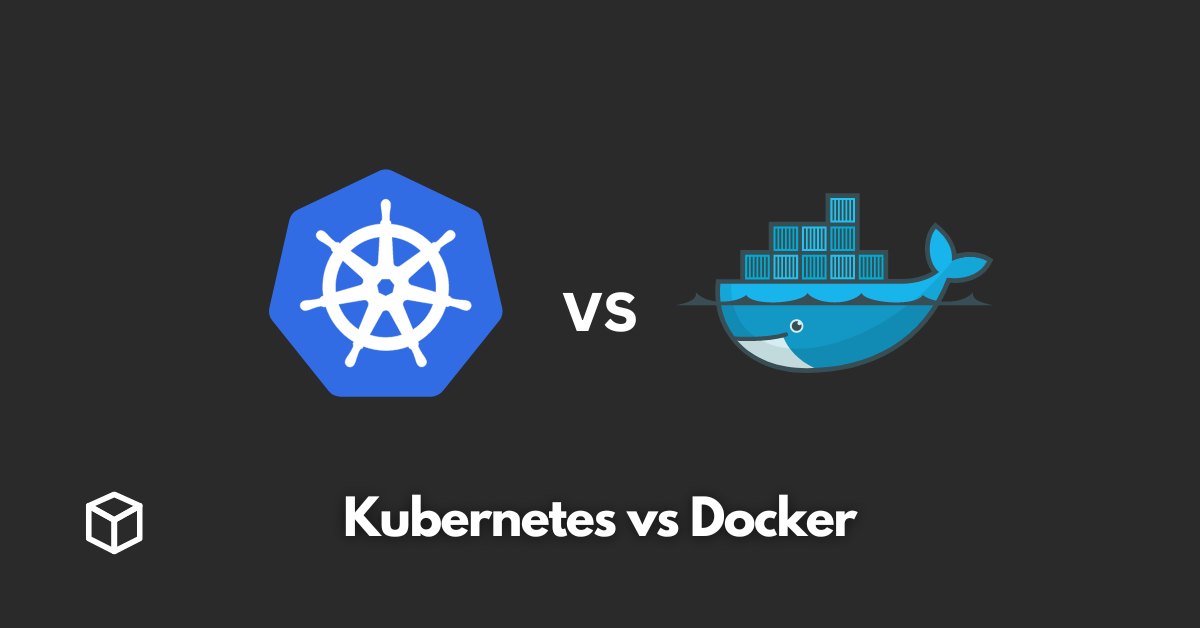Kubernetes and Docker are two of the most popular tools for container orchestration and management.
Both of these tools have been widely adopted by developers and organizations for different use cases.
In this article, we will explore the similarities and differences between Kubernetes and Docker, and when it’s best to use one over the other.
Kubernetes
Kubernetes is an open-source container orchestration system that automates the deployment, scaling, and management of containerized applications.
It was originally developed by Google, and is now maintained by the Cloud Native Computing Foundation (CNCF).
Kubernetes allows developers to manage and scale their applications in a more efficient way, without having to worry about the underlying infrastructure.
How Kubernetes Works
Kubernetes works by creating a cluster of machines, known as nodes, that are used to run containerized applications.
The cluster is managed by a master node, which is responsible for scheduling and managing the resources of the other nodes.
The master node communicates with the worker nodes to ensure that the applications are running as intended.
Key features and benefits of Kubernetes
- Automatic scaling: Kubernetes allows you to easily scale your applications up or down based on demand. This helps you save resources and money by only running the necessary number of replicas of your application.
- Self-healing: Kubernetes can automatically detect and replace failed containers, ensuring that your applications are always running.
- Load balancing: Kubernetes can automatically distribute incoming traffic to different replicas of your application, ensuring that it can handle high traffic.
- Portability: Kubernetes allows you to deploy your applications on any cloud or on-premises infrastructure.
Use cases of Kubernetes
- Microservices: Kubernetes is well-suited for managing microservices-based applications, as it allows you to easily scale and manage the different services.
- Big Data: Kubernetes can be used to manage big data workloads, such as Apache Hadoop and Apache Spark, by automating the deployment and scaling of these applications.
- Machine learning: Kubernetes can be used to manage machine learning workloads, such as TensorFlow and PyTorch, by automating the deployment and scaling of these applications.
Docker
Docker is a platform for developing, shipping, and running containerized applications.
It was first released in 2013 and has since become one of the most popular tools for containerization.
Docker allows developers to package their applications and dependencies into a container, which can then be easily deployed and run on any machine.
How Docker Works
Docker works by creating a container for each application.
The container is a lightweight, isolated environment that contains all the necessary files and dependencies for the application to run.
The container can be easily deployed and run on any machine that has the Docker runtime installed.
Key features and benefits of Docker
- Isolation: Docker containers provide an isolated environment for your applications, ensuring that they don’t interfere with each other.
- Portability: Docker containers can be easily deployed and run on any machine that has the Docker runtime installed.
- Consistency: Docker containers ensure that your applications run the same way on any machine, regardless of the underlying infrastructure.
Use cases of Docker
- Development: Docker is often used for development, as it allows developers to easily test their applications in a variety of environments.
- CI/CD: Docker can be used in continuous integration and continuous delivery pipelines, as it allows you
- to easily package and deploy applications in different environments.
- Microservices: Docker is well-suited for containerizing microservices-based applications, as it allows you to easily package and deploy each service in its own container.
- Legacy applications: Docker can be used to containerize legacy applications that are difficult to run in modern environments, allowing them to be easily deployed and run on modern infrastructure.
Kubernetes vs Docker
Similarities:
- Both Kubernetes and Docker are used for container orchestration and management.
- Both tools allow for automatic scaling and self-healing of applications.
- Both tools are open-source and widely adopted by the community.
Differences:
- Kubernetes is more focused on orchestration, while Docker is more focused on containerization.
- Kubernetes is more complex and requires more resources to set up and run, while Docker is simpler and requires fewer resources.
- Kubernetes can run on any infrastructure, while Docker is more limited to running on Linux.
How they complement each other:
Kubernetes and Docker can complement each other in a few ways:
- Docker can be used to containerize applications, while Kubernetes can be used to manage and scale them.
- Kubernetes can use Docker containers as the underlying runtime for running applications.
- Both tools can be used together in a CI/CD pipeline, with Docker being used to package and deploy applications, and Kubernetes being used to manage and scale them in production.
When to use Kubernetes vs Docker
- If you have a large and complex application that requires advanced orchestration and management, then Kubernetes is the better choice.
- If you have a simple application that only requires basic containerization and management, then Docker is the better choice.
- If you’re running on a cloud provider that already offers a managed Kubernetes service, such as Google Kubernetes Engine or Amazon Elastic Kubernetes Service, then it may be easier to use Kubernetes.
- If you’re running on a cloud provider that already offers a managed Docker service, such as Amazon Elastic Container Service or Azure Container Instances, then it may be easier to use Docker.
Conclusion:
In this article, we’ve explored the similarities and differences between Kubernetes and Docker, and when it’s best to use one over the other.
Both of these tools are widely adopted by the community and have their own unique strengths and weaknesses. Kubernetes is more focused on orchestration, while Docker is more focused on containerization.
Ultimately, the choice between Kubernetes and Docker will depend on the specific needs of your application and your infrastructure.
Future developments in Kubernetes and Docker
Kubernetes and Docker continue to evolve and improve, with new features and updates being released regularly.
Kubernetes is currently working on improving its scalability and security, while Docker is focusing on improving its performance and ease of use.
Final Thoughts and Recommendations
Kubernetes and Docker are both powerful tools for container orchestration and management, and the choice between them will depend on the specific needs of your application and infrastructure.
If you have a large and complex application that requires advanced orchestration and management, then Kubernetes is the better choice.
If you have a simple application that only requires basic containerization and management, then Docker is the better choice.
It’s also worth considering the managed services offered by cloud providers, as they can make it easier to use either Kubernetes




